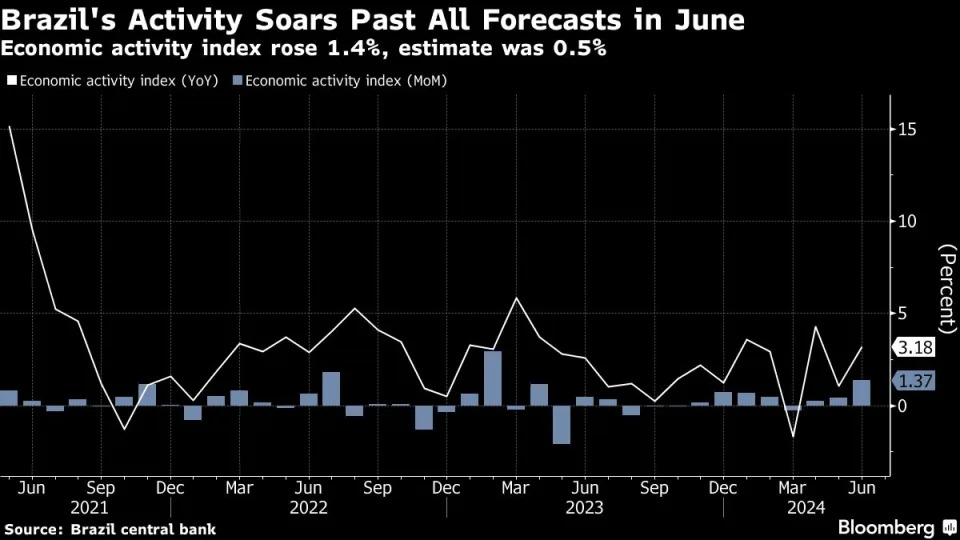(Bloomberg) -- Romania’s central bank held borrowing costs steady as political uncertainty following last month’s annulment of the country’s presidential election adds to fiscal and inflationary risks.
The National Bank of Romania left the benchmark interest rate at 6.5%, matching the estimate of all 17 economists in a Bloomberg survey. It’s the third time in a row that policymakers opted to leave the rate unchanged as the political fallout persists and inflation slows unsteadily.
“Considerable uncertainties and risks stem from the future fiscal and income policy stance,” the central bank said in the statement. Inflation is expected to decline in the first quarter, though on a “higher than previously anticipated path.”
Romania has been gripped by political instability since the first round of its presidential election in November produced a shock victory for a fringe, pro-Russian candidate. That led to accusations of meddling by the Kremlin and a top court decision to cancel the contest. The vote will be held again in May.
Price growth came in at 5.1% last year, above the central bank’s forecast, registering as one of the highest rates in the European Union. The government’s plans to rein in the budget deficit to about 7% of economic output this year from 8.6% in 2024 may also trigger tax increases in the coming months, adding to inflationary pressures.
The central bank currently expects inflation to ease to 3.5% at the end of this year, the upper end of its targeted band but a revision of the outlook is expected at the next meeting in February. By then, the details of the state budget plan for 2025 may offer more clarity about potential tax changes that will have an impact on prices and the economy.
Despite a boost in state spending, including on infrastructure, Romania’s economy barely avoided a recession in the second and third quarters, with the industry and exports still struggling to rebound.
--With assistance from Barbara Sladkowska.





